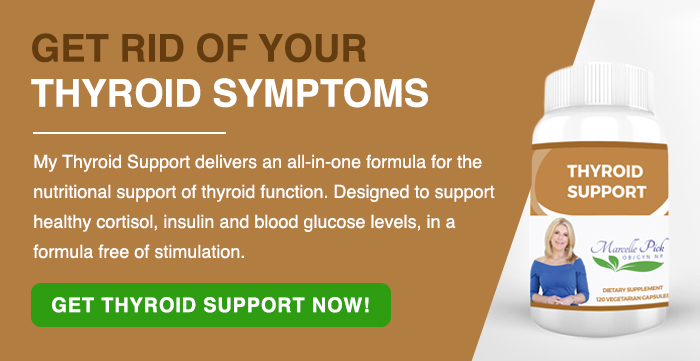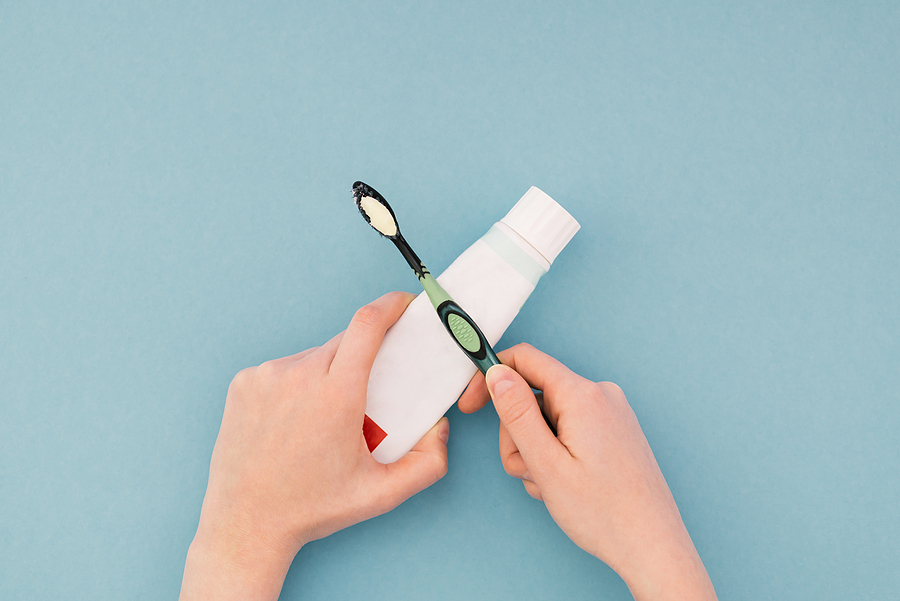Have you heard much about selenium? I wouldn’t be surprised if your answer is no; selenium is one of nature’s best kept secrets! We only need small amounts of this amazing mineral, but it has huge effects on our health. Selenium protects us against many health problems associated with the aging process, such as osteoarthritis and certain types of cancer. Even more importantly, it’s vital to the normal functioning of our thyroid. Since women are more prone to thyroid problems, selenium is especially critical for us.
Selenium is one of those nutrients that, when used in your food in the right amounts, can make big changes. That is really exciting! It reminds us how vitally important our diet is to our overall health and well-being. So let’s look at this important nutrient and understand the connection between selenium and thyroid function.
Selenium and Thyroid Connection
So, how does selenium affect your thyroid health? If your level of selenium is low, your thyroid will have to work harder to make its hormones, and your body will have a more difficult job changing those hormones into a form your cells can use. This happens because selenium is a chief component of the molecules which are necessary for your body to be able to create and use thyroid hormones, called seleno-proteins.
What do these molecules do?
- Directly regulate thyroid hormone production
- Support the conversion of thyroxine (T4) to triiodothyronine (T3).
- Protect the thyroid tissues whenever the thyroid is affected by stress – and in today’s world, stress is constant!
Symptoms of low selenium levels
- Muscle pain or weakness
- Discoloration of hair or skin
- Whitening of the beds of your fingernails
In addition to assisting with the production of thyroid hormones, selenium is also critical in the regulation of thyroid hormonal levels. Several of the enzymes arranged around selenium are key factors in assuring that thyroid hormone levels remain balanced. Some of these enzymes, called seleno-de-iodinases help to keep T3 at an appropriate level in liver, kidney, thyroid and brain cells. Glutathione peroxidase is another enzyme which helps to limit T4 when its levels go on the high side.
Our overall health can suffer if our body is unable to maintain the right levels of essential thyroid hormones due to a lack of the selenium needed to create these enzymes.
Selenium and Iodine: Thyroid’s Natural Partners
The problems which selenium deficiency can cause are made more serious when another key nutrient, iodine, is low as well. Iodine is a nutrient that is much better known for its role in thyroid health. Selenium is crucial in aiding the body to recycle iodine. A selenium deficiency coupled with an iodine deficiency is likely to lead to thyroid imbalance.
An enlarged thyroid is commonly known as a goiter. This is one of the more serious forms of thyroid imbalance. Many people who are diagnosed with a goiter have a deficiency of iodine, but research has shown that some may have a significant selenium deficiency as well. It’s vital to treat both deficits in order to re-establish thyroid stability.
For more information, refer to “Iodine And The Thyroid – Worth A Second Glance“.
Top Food Sources of Selenium
In the United States, most people get selenium from their diet. The top food sources include:
- Brazil nuts
- Oysters; tuna
- Whole wheat bread
- Seeds
- Pork; beef
- Onions
- Garlic
- Kale *
- Cabbage *
- Cauliflower *
*these should always be cooked or steamed to break down goitrogenic compounds that can interfere with thyroid function.
Other protein sources include:
- Eggs
- Turkey
- Chicken
- Lamb
- Seafood.
Women who have digestive problems are more likely to develop selenium deficiency, as are those who don’t consume a varied diet which contains selenium-rich foods. This includes many American women who eat the standard American diet.
Making Sure You Get Adequate Selenium for Your Thyroid
One of the first things to understand about selenium is that it’s very easy to get an adequate amount through your diet. Eating foods that support your thyroid has proven to have many benefits, and foods like those listed above are the best way to ensure proper balance.
Still, it can be difficult to get a consistent amount of selenium from your diet, especially if you have digestive problems, and 80% of my patients do. If you can’t eat foods high in selenium on a regular basis, or if you have a GI condition which impairs your ability to absorb nutrients, a good alternative is to use a high-quality multivitamin which includes selenium. A single-element supplement isn’t usually recommended because a combination product which is carefully formulated helps to ensure selenium is appropriately coupled with the right levels of other nutrients such as iodine.
A daily dose of around 200 mcg (micrograms) of selenium is just right for most people, but always check with your healthcare provider first, to determine what amount is right for you. It’s important to have your practitioner monitor your thyroid levels if you have ever been diagnosed with hypothyroidism, Grave’s disease (hyperthyroidism), Hashimoto’s autoimmune thyroiditis or any other form of thyroid disease as these can change with the right nutrient support.
A little information can go a long way — when you know which minerals and nutrients your body needs, you can find ways to support your thyroid naturally and feel your very best!









